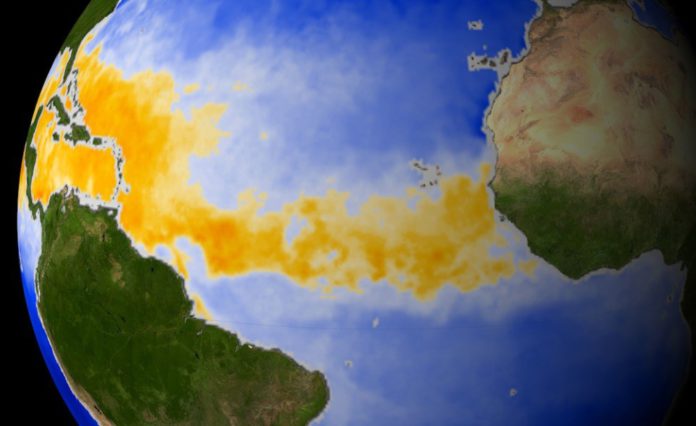New Delhi: With global temperatures rising and extreme weather events increasing, there is a critical need for climate resilient health systems, according to the World Health Organisation (WHO) which has unveiled a framework in this regard.
The Operational Framework prescribes that the health sector should lead by example by reducing its own greenhouse gas emissions, which are now responsible for almost 5% of the global total, while continuing to enhance quality of care.
It is aimed at addressing the challenge of protecting and improving the health of populations in the face of an unstable and changing climate.
The Framework has been released in the run up to the United Nations Framework Convention on Climate (COP-28).
This comprehensive Framework is designed to enhance the resilience of health systems while simultaneously reducing greenhouse gas emissions to help safeguard the health of communities worldwide, according to a WHO statement.
“Around the world, health systems are vulnerable to the impacts of climate change, but they also contribute to it,” it said, quoting WHO Director General Dr Tedros Adhanom Ghebreyesus.
“We, therefore, have a dual responsibility to build health systems that can withstand climate-related shocks, while at the same time reducing their carbon footprint. This framework gives countries a roadmap for doing just that,” he said.
The framework emphasizes the need for optimization of resource use and the implementation of strategies to curtail greenhouse gas emissions while continuing to prioritize climate resilience.
The Framework presents different pathways for health systems to strengthen their climate resilience and decarbonize depending on their overall performance, levels of greenhouse gas emissions and climate change and health capacity.
This includes systems in low-income countries that need to increase energy access and health service provision to provide universal health coverage.
Building climate resilient and low carbon health systems contributes to WHO’s commitment to providing safe, quality healthcare services while helping combat the root causes of climate change.
The key objectives of the WHO Framework are:
to guide health sector professionals in addressing climate-related health risks through collaboration;
to strengthen health system functions for climate resilience and low carbon health approaches;
to support development of specific interventions for climate risk reduction and emissions reduction; and
to define roles and responsibilities for health decision-makers in climate resilience.
The benefits of implementing this Framework extend far beyond the realm of health care.
By reducing greenhouse gas emissions and enhancing the resilience of health systems, we are contributing to the broader objectives of universal health coverage (UHC), global health security, and the United Nations Sustainable Development Goals (SDGs).
The Framework was developed following the request for WHO support by Ministers of Health from over 75 countries to building climate resilient and low-carbon sustainable health systems.
At COP-28, which will also feature a dedicated Health Day within the Conference of Parties, this historic occasion will underscore the importance of incorporating public health priorities into climate discussions.







